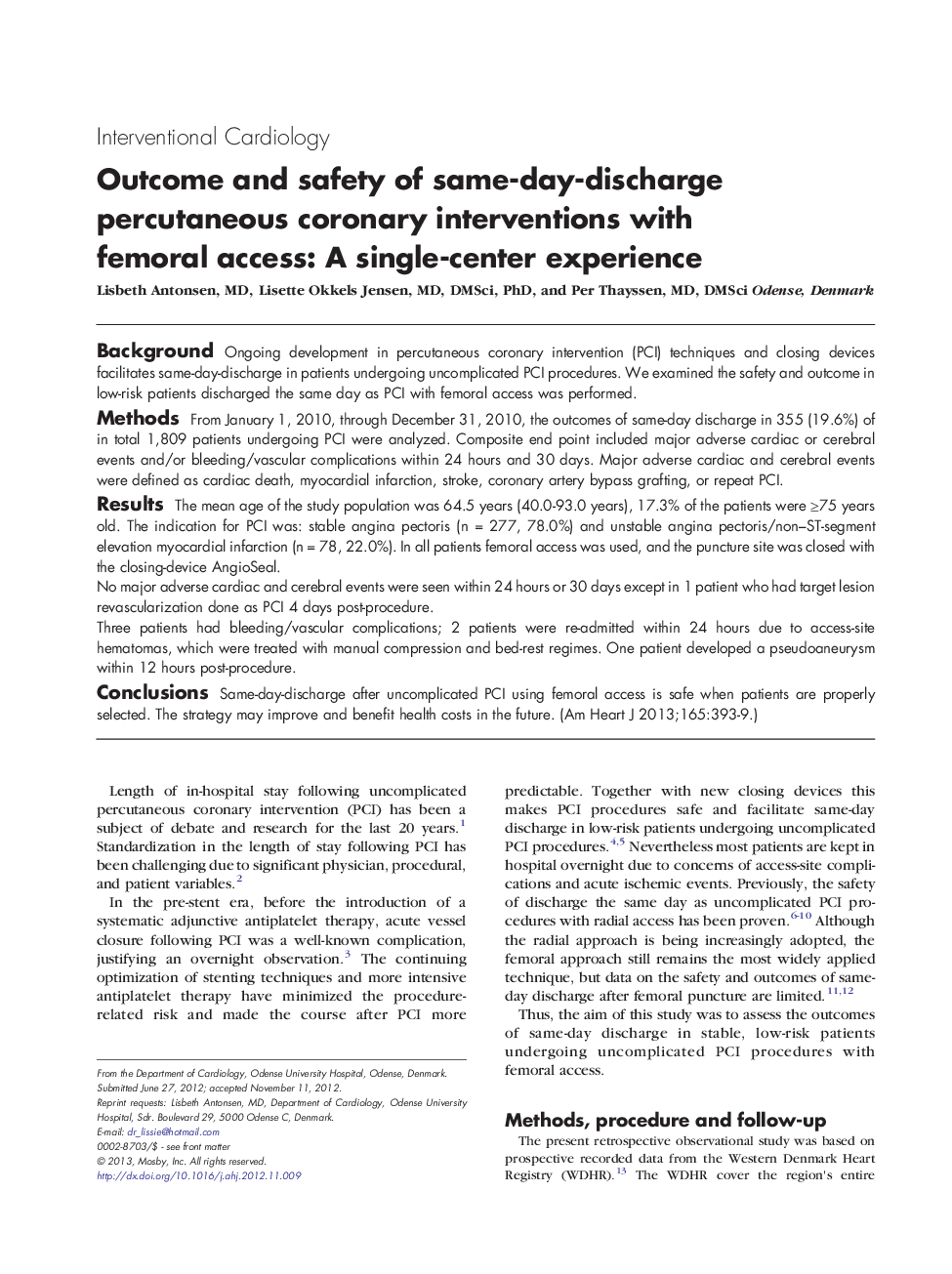| Article ID | Journal | Published Year | Pages | File Type |
|---|---|---|---|---|
| 2849474 | American Heart Journal | 2013 | 7 Pages |
BackgroundOngoing development in percutaneous coronary intervention (PCI) techniques and closing devices facilitates same-day-discharge in patients undergoing uncomplicated PCI procedures. We examined the safety and outcome in low-risk patients discharged the same day as PCI with femoral access was performed.MethodsFrom January 1, 2010, through December 31, 2010, the outcomes of same-day discharge in 355 (19.6%) of in total 1,809 patients undergoing PCI were analyzed. Composite end point included major adverse cardiac or cerebral events and/or bleeding/vascular complications within 24 hours and 30 days. Major adverse cardiac and cerebral events were defined as cardiac death, myocardial infarction, stroke, coronary artery bypass grafting, or repeat PCI.ResultsThe mean age of the study population was 64.5 years (40.0-93.0 years), 17.3% of the patients were ≥75 years old. The indication for PCI was: stable angina pectoris (n = 277, 78.0%) and unstable angina pectoris/non–ST-segment elevation myocardial infarction (n = 78, 22.0%). In all patients femoral access was used, and the puncture site was closed with the closing-device AngioSeal.No major adverse cardiac and cerebral events were seen within 24 hours or 30 days except in 1 patient who had target lesion revascularization done as PCI 4 days post-procedure.Three patients had bleeding/vascular complications; 2 patients were re-admitted within 24 hours due to access-site hematomas, which were treated with manual compression and bed-rest regimes. One patient developed a pseudoaneurysm within 12 hours post-procedure.ConclusionsSame-day-discharge after uncomplicated PCI using femoral access is safe when patients are properly selected. The strategy may improve and benefit health costs in the future.
